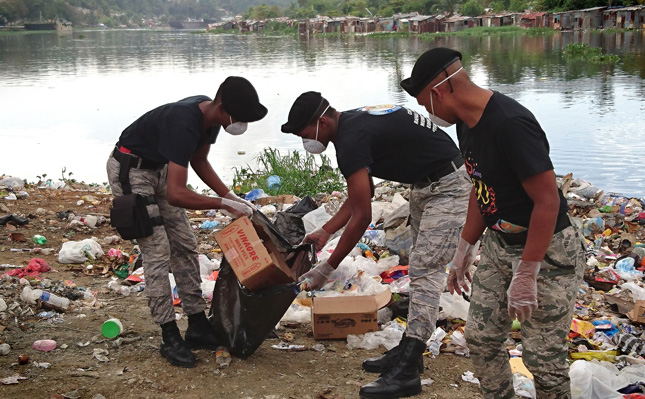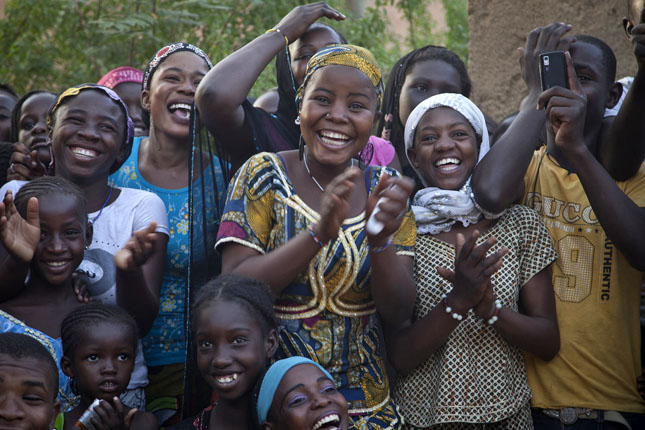-
Where Are All The Men? Faith-Based Efforts to Engage Men and Boys in HIV Prevention Services
›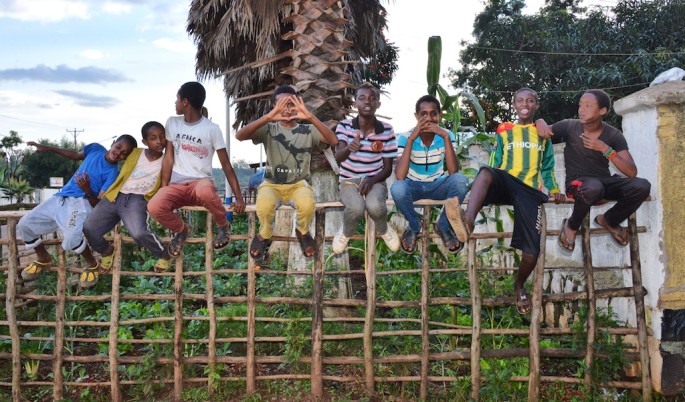
In sub-Saharan Africa, “more than half of the men under the age of 35 do not know their [HIV] status and are not on treatment,” said Dr. Sean Cavanaugh of the Office of the Global AIDS Coordinator at a recent Wilson Center event on engaging the faith community in reaching young men and boys with HIV prevention services. Consequently, men often don’t seek HIV services promptly, decreasing their rates of antiretroviral therapy and viral suppression, and increasing HIV mortality rates.
-
Joyce Banda on Reaching Girls Before Age 10, Balancing Tradition With Change, and More
›
If you really want to fight the patriarchy, if you want to make a difference in girls’ lives, you have to reach them when they are young, says Joyce Banda.
-
Reproductive Health Care in Crises Has Come a Long Way, Says Sandra Krause, But There’s More to Be Done
› There may be more women and girls at risk of maternal health complications in fragile and conflict-affected settings today, but attention to the issue is not new and the international community has made important strides over the last 20 years, says Sandra Krause, program director for reproductive health at Women’s Refugee Commission, in this week’s podcast.
There may be more women and girls at risk of maternal health complications in fragile and conflict-affected settings today, but attention to the issue is not new and the international community has made important strides over the last 20 years, says Sandra Krause, program director for reproductive health at Women’s Refugee Commission, in this week’s podcast. -
Masculinity Under the Microscope: Better Accounting for Men in Climate Adaptation
›December 13, 2016 // By Anam Ahmed
“Before the famine my life was better. I was a man in my own country,” Abdi Abdullahi Hussein, a Somali refugee living in Kenya, tells The Climate Reality Project. “When you have livestock and a farm and it all disappears, it feels like falling off a cliff.”
-
Free Lunch: The Development Argument for Taking Zika More Seriously
›
I recently returned to Washington, DC, after 10 days in India. New Delhi was warm, moist, crowded – and buzzing with mosquitoes. Fortunately, at least for now, their bites are little more than an itchy nuisance, which is just as well.
-
The Road Ahead for Young People and Family Planning
›
Yesterday was International Youth Day, and governments, donors, and public health professionals are paying more attention to the unique needs of the world’s young people and the importance of their civic engagement and participation. Unfortunately, most young people do not have access to basic sexual and reproductive health care and information. This not only undermines their health and wellbeing, but significantly affects their abilities to stay in school and participate in their communities.
-
Keeping Up With Cuba: Mother-to-Child HIV Transmission in the Caribbean
›
Fear of mother-to-child transmission of HIV and other infectious diseases has been used as an excuse to deny women health care around the world. Some women living with HIV have even been sterilized without their knowledge. But with proper treatment, the chances of transmission to an unborn child are very low in many cases. The World Health Organization (WHO), in fact, just declared Cuba the first country to eliminate mother-to-child transmission of HIV and syphilis.
-
50 Years of Family Planning at USAID: Successes, Political Challenges, and Future Directions
›
Since President Lyndon B. Johnson created the USAID population program in 1965, it has evolved in tandem with the global discourse on population and demography. “The agency’s family planning program is as relevant today as it ever was, and is necessary,” said Jennifer Adams, deputy assistant administrator of the U.S. Agency of International Development’s Bureau for Global Health. The bureau houses the Office of Population and Reproductive Health, which implements U.S. development and relief efforts to expand access to modern contraceptives, fight HIV/AIDS, reduce unsafe abortions, and protect the health of women and children. [Video Below]
Showing posts from category HIV/AIDS.


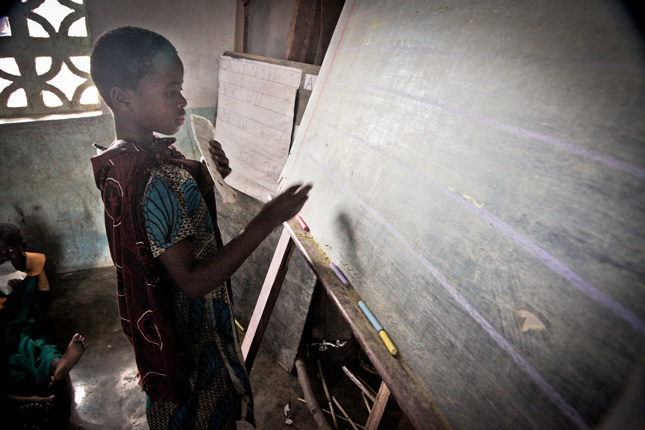
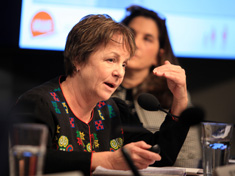 There may be
There may be 
